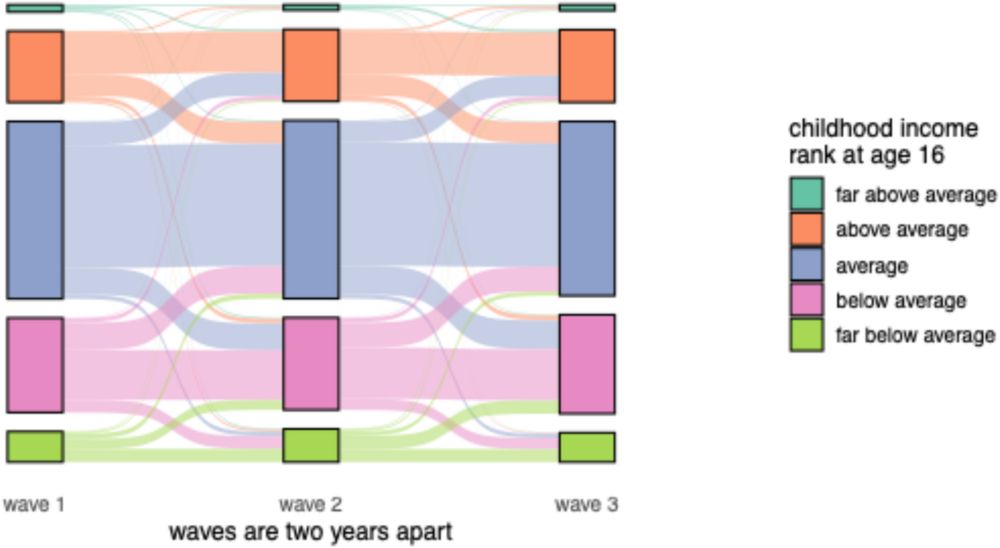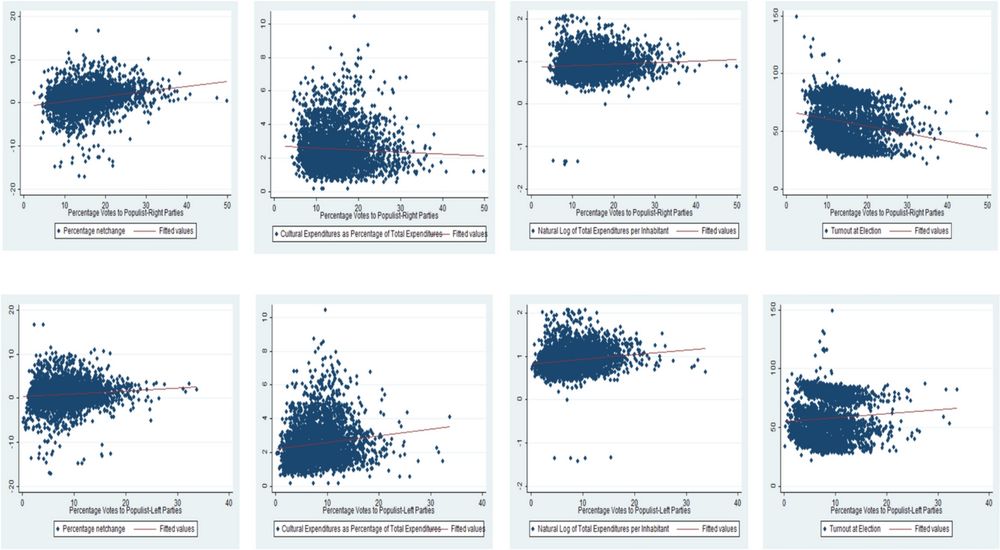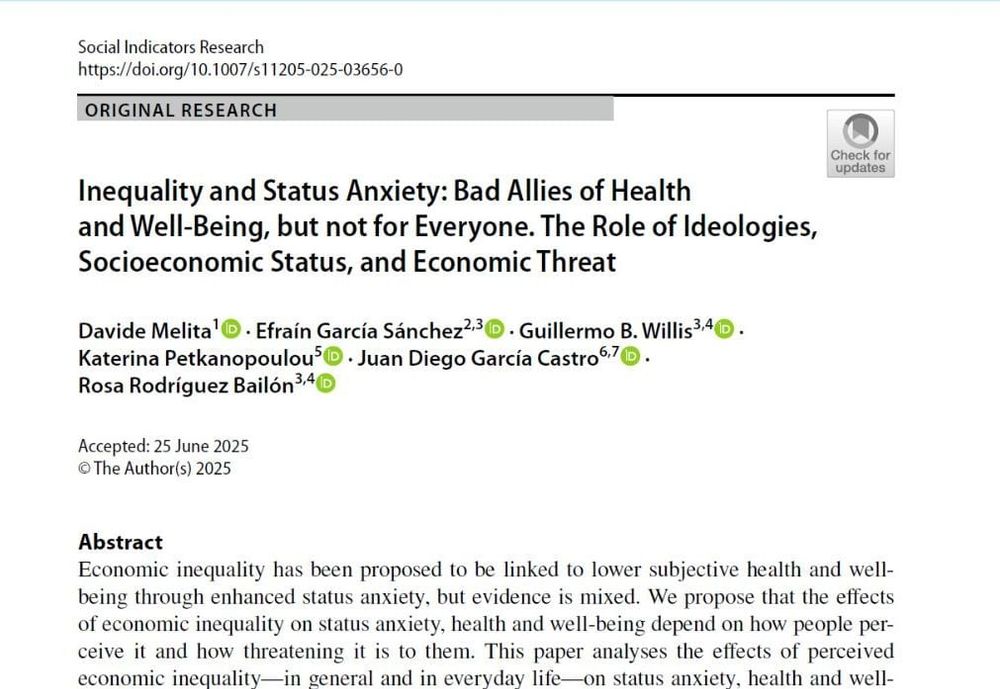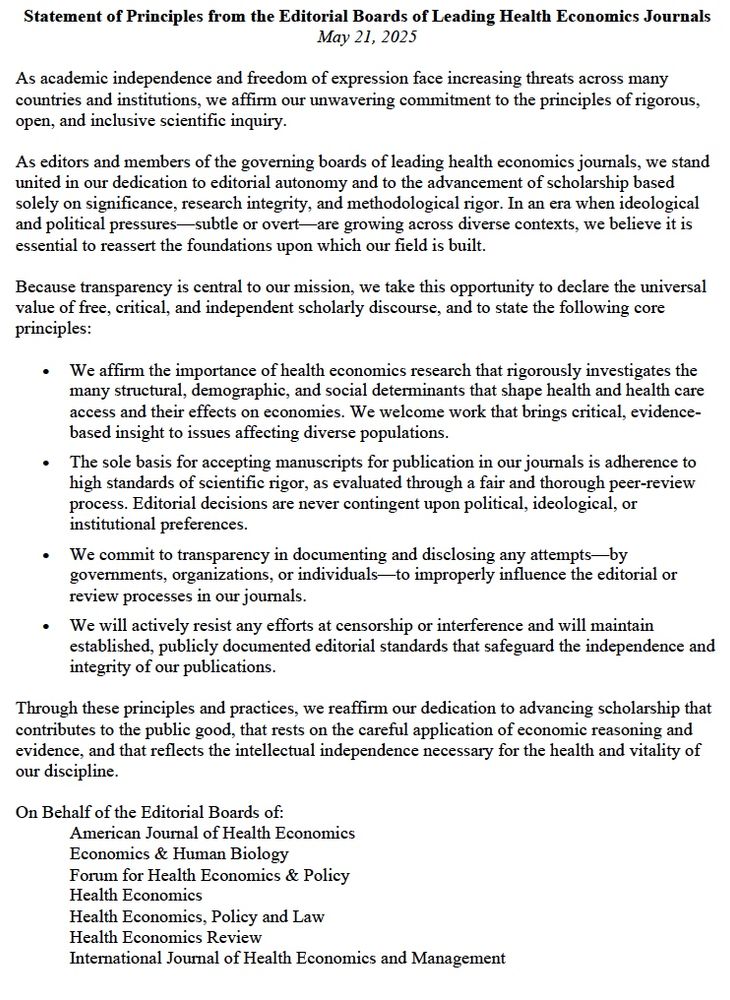https://link.springer.com/journal/11205
Editor: @dbartram.bsky.social
🔗 Read now: tinyurl.com/3rey89f3
#demography

🔗 Read now: tinyurl.com/3rey89f3
#demography
doi.org/10.1007/s112...
🧵👇 (1/5)

doi.org/10.1007/s112...
🧵👇 (1/5)

doi.org/10.1007/s112...
🧵⬇️
bsky.app/profile/apwe...
doi.org/10.1007/s112...
🧵⬇️
bsky.app/profile/apwe...
Quality of Life, Well-being and Happiness in Latin America
ISQOLS 2026 Regional Conference, Buenos Aires 🇦🇷
📅 9–11 March 2026 | Univ. de Palermo
Deadline/Fecha límite: 30 Sept 2025
🔗 isqols.org/Argentina
#ISQOLS #Wellbeing

Quality of Life, Well-being and Happiness in Latin America
ISQOLS 2026 Regional Conference, Buenos Aires 🇦🇷
📅 9–11 March 2026 | Univ. de Palermo
Deadline/Fecha límite: 30 Sept 2025
🔗 isqols.org/Argentina
#ISQOLS #Wellbeing
According to @cbd-paradigm.bsky.social, Burger & Webber in @socialindicators.bsky.social , it grows in towns drained of people and public culture.
doi.org/10.1007/s112...

According to @cbd-paradigm.bsky.social, Burger & Webber in @socialindicators.bsky.social , it grows in towns drained of people and public culture.
doi.org/10.1007/s112...
link.springer.com/collections/...
link.springer.com/collections/...
Please consult our editorial article, to gain guidance on our aims & scope as well as some core methodological ideas. @isa-rc55.bsky.social
link.springer.com/article/10.1...
Please consult our editorial article, to gain guidance on our aims & scope as well as some core methodological ideas. @isa-rc55.bsky.social
link.springer.com/article/10.1...

Full article: link.springer.com/article/10.1...

Full article: link.springer.com/article/10.1...
After a 1-year trial period where it is only "strongly encouraged", I think it needs to become mandatory.
Desk-rejections will skyrocket (already very high). So be it...
After a 1-year trial period where it is only "strongly encouraged", I think it needs to become mandatory.
Desk-rejections will skyrocket (already very high). So be it...
📝Article @socialindicators.bsky.social: link.springer.com/article/10.1...
📰Post @lseinequalities.bsky.social: blogs.lse.ac.uk/inequalities...
📝Article @socialindicators.bsky.social: link.springer.com/article/10.1...
📰Post @lseinequalities.bsky.social: blogs.lse.ac.uk/inequalities...
"Introducing the Social Integration Index for Older Europeans: The Role of Gender and Care Regimes"
Social integration plays a vital role in the health and longevity of older adults, yet a comparative European measurement tool has been lacking.
"Introducing the Social Integration Index for Older Europeans: The Role of Gender and Care Regimes"
Social integration plays a vital role in the health and longevity of older adults, yet a comparative European measurement tool has been lacking.
🔗 rdcu.be/ers11
🧵 Key insights 👇
🔗 rdcu.be/ers11
🧵 Key insights 👇
🔗 More info: doi.org/10.1007/s112...
#SocialResearch #Inequality

🔗 More info: doi.org/10.1007/s112...
#SocialResearch #Inequality
🔗 Read the full article here:
link.springer.com/article/10.1...
#ISQOLS #GNH #Wellbeing

🔗 Read the full article here:
link.springer.com/article/10.1...
#ISQOLS #GNH #Wellbeing

30 Years of ISQOLS Impact: Reflections on community, careers & connection from Stephanie Rossouw, Valerie Møller & Andrew Clark.
👀 Watch: youtu.be/prZ5xJb50a0?...
🎉 Join us in Luxembourg, 21–25 July! #ISQOLS2025 #ISQOLS30 #QualityOfLife

30 Years of ISQOLS Impact: Reflections on community, careers & connection from Stephanie Rossouw, Valerie Møller & Andrew Clark.
👀 Watch: youtu.be/prZ5xJb50a0?...
🎉 Join us in Luxembourg, 21–25 July! #ISQOLS2025 #ISQOLS30 #QualityOfLife
If you don't want to do a review the old-fashioned way, better to decline the request.
Giving someone else's manuscript to AI is a violation of intellectual property rights/laws; the manuscript isn't yours...
If you don't want to do a review the old-fashioned way, better to decline the request.
Giving someone else's manuscript to AI is a violation of intellectual property rights/laws; the manuscript isn't yours...
We (the editors) have published some detailed guidance for authors:
rdcu.be/dQwLD
Underlying idea: authors should have access to a clear sense of how the editors evaluate manuscripts.
We (the editors) have published some detailed guidance for authors:
rdcu.be/dQwLD
Underlying idea: authors should have access to a clear sense of how the editors evaluate manuscripts.
“What Makes a Rigorous Quantitative Social Research?”
w/ Prof. David Bartram, Editor of Social Indicators Research
Register at: shorturl.at/eJJwW

@lsepress.bsky.social #Wellbeing #AnimalLovers #horselover @socialindicators.bsky.social #doglovers

@lsepress.bsky.social #Wellbeing #AnimalLovers #horselover @socialindicators.bsky.social #doglovers
@socialindicators.bsky.social Special Issue: link.springer.com/collections/...
@socialindicators.bsky.social Special Issue: link.springer.com/collections/...

